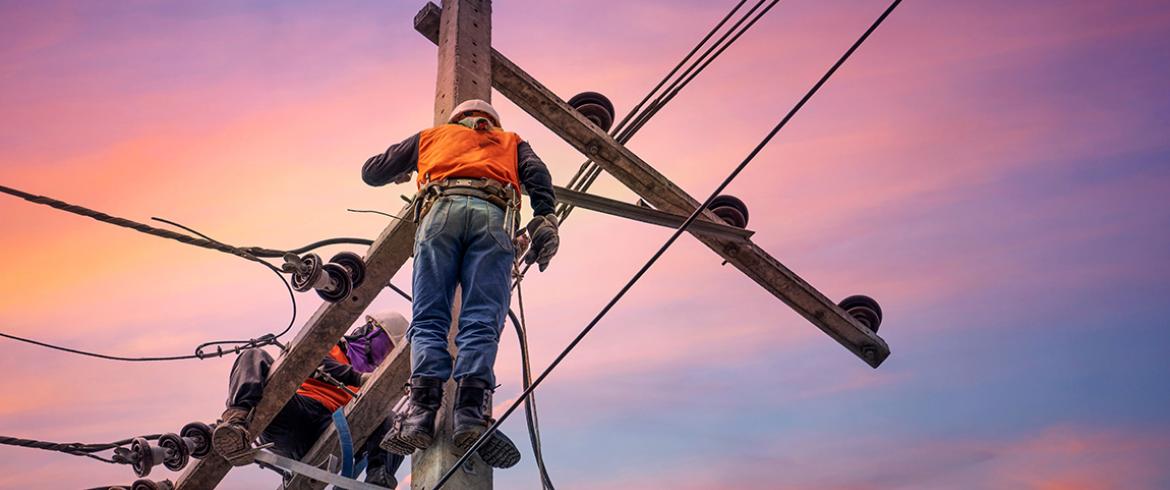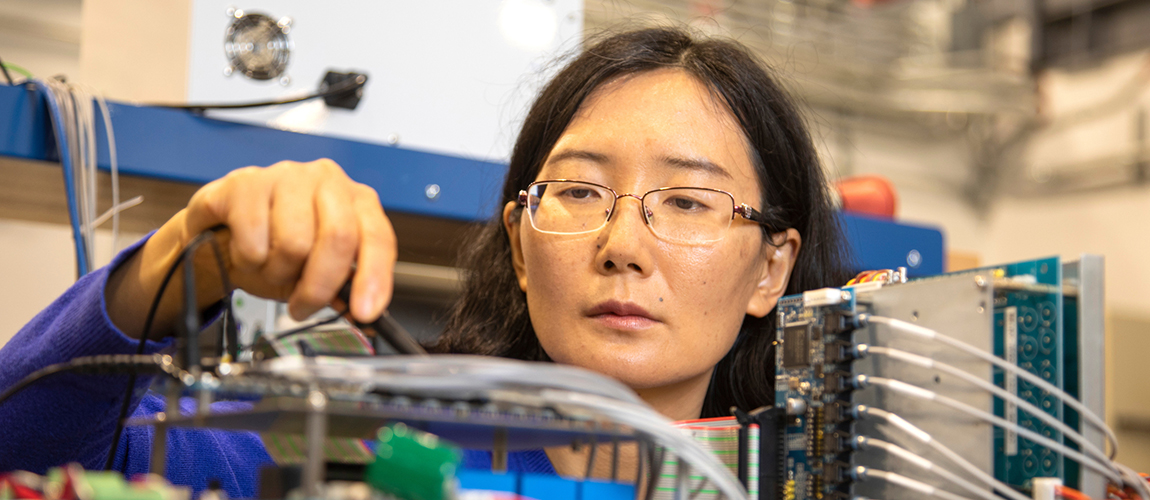
By mrpratan for Adobe Stock
FAMU-FSU College of Engineering researchers are developing a modular solar electricity system that can help communities keep electricity flowing during natural disasters.
The project is one of 20 designated by the U.S. Department of Energy to increase community resilience from disruptions caused by extreme weather and other disasters.
“Extreme weather can knock power out for a few days, especially if it damages crucial parts of electricity infrastructure,” said Yuan Li, an assistant professor in the Department of Electrical and Computer Engineering leading the project. “Our solution is to develop a system duplicating that crucial infrastructure as many submodules, so an electric system can keep working even if a part is compromised.”

Li and her team are developing lightweight, compact inverters for solar power plants. The inverters, which convert direct current to alternating current, help regulate the flow of electricity from power plants to the electric grid. The submodules are small enough that a team of two people can set them up without heavy equipment, allowing solar power plants to quickly restore electricity in the wake of disruptions, such as the hurricanes that batter Florida during the summer.
The technology allows workers to replace the failed part while the rest of the inverter system generates power.
WHO’S INVOLVED:
Li is working with several faculty researchers from the college, including Eren Ozguven, Fang Peng, Md Omar Faruque and Simon Foo, representing the Resilient Infrastructure and Disaster Response Center, Florida State University’s Center for Advanced Power Systems, and the Department of Electrical and Computer Engineering. The team is working on the project with the City of Tallahassee, Northeastern University, and the National Renewable Energy Lab.
WHERE’S THE MONEY COMING FROM:
The U.S. Department of Energy is funding the $2.6 million three-year study through Florida A&M University. The work is part of the DOE initiative known as the Renewables Advancing Community Energy Resilience (RACER) program, which aims to increase resilience to disasters by using renewable energy. DOE dedicated $33 million to fund 20 research projects nationwide to help communities plan their transition to a clean energy future and improve grid reliability and security.

